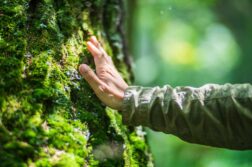Universities of applied sciences (UAS) carry out a lot of applied research and development, which especially benefits working life. This research is characterised by collaboration: it involves municipalities, businesses and communities in the region, benefiting everyone. The following presents a small sample of the results of research carried out by Finnish universities of applied sciences. More publications can be found in our open repository Theseus.
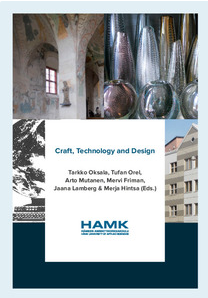 Oksala, T. ym. (2022). Craft, technology and design. Häme University of Applied Sciences.
Oksala, T. ym. (2022). Craft, technology and design. Häme University of Applied Sciences.
The publication explores the intricate relationships among craft, technology, and design. It highlights how traditional craft knowledge continues to influence modern design practices and examines how designers’ thinking evolves with the integration of digital tools during the design process. The role of technology is discussed not only as a medium connecting artisans to their creations but also as a tangible reality manifested in various forms such as craftwork, art, and architecture. The text is structured into three main sections: the enduring presence of craft knowledge, the application of craft in the digital age, and the deeper understanding of designers’ knowledge and the nature of design objects.
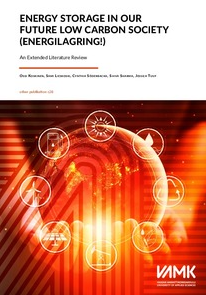 Koskinen, O.; Lieskoski, S.; Söderbacka, C.; Sharma, S.; Tuuf, J. (2021) Energy storage in our future low carbon society. Novia University of Applied Sciences, Åbo Akademi University (ÅAU) and Vaasa University of Applied Sciences.
Koskinen, O.; Lieskoski, S.; Söderbacka, C.; Sharma, S.; Tuuf, J. (2021) Energy storage in our future low carbon society. Novia University of Applied Sciences, Åbo Akademi University (ÅAU) and Vaasa University of Applied Sciences.
The increase wind and solar energy has created a need for developing energy storage systems which can cop with the fluctuating production. The main objective of this project was to construct a demonstration environment of energy storage and the methods commonly utilized for evaluating the economics of energy storage. Two empirical studies were used to map the business opportunities and existing competencies within energy storage within Vaasa region. This report is part of the Energy storage in our future low carbon society project.
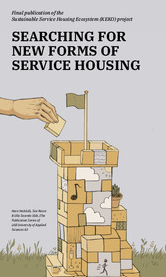 Heikkilä, H.; Roine, S. & Saarela, U., eds. (2023). Searching for new forms of service housing. LAB University of Applied Sciences.
Heikkilä, H.; Roine, S. & Saarela, U., eds. (2023). Searching for new forms of service housing. LAB University of Applied Sciences.
This project focused on creating new concepts for service housing to increase the wellbeing of the elderly as they move from their homes to service housing. While the focus is on communal living, the modification of homes to meet the changing needs of their residents is also discussed. The future of housing is assessed through the profiles of older people and their wishes about their housing and the methods and technologies used to support them. This report is part of the Sustainable service housing ecosystem (KEKO) project.
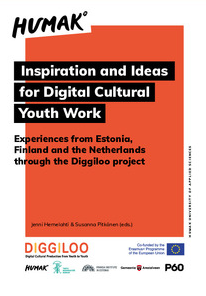 Hernelahti, J. & Pitkänen, S. (2023). Inspiration and ideas for digital cultural youth work. Humak University of Applied Sciences.
Hernelahti, J. & Pitkänen, S. (2023). Inspiration and ideas for digital cultural youth work. Humak University of Applied Sciences.
This publication showcases a collection of projects and practices in the field of cultural youth work, with a focus on programmes that draw on the potential of digitalization. Experiences have been collected from three cities in three countries. The case studies focus on three themes: gaming, visual arts and performance arts (music, podcasts and theatre) and use digital technology in a new or unexpected way. The publication is part of the Digital cultural production from youth to youth (DIGGILOO) project.
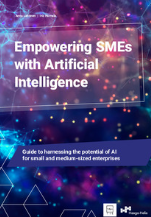 Lahtinen, A. & Humala, I. eds. (2023). Empowering SMEs with artificial intelligence: guide to harnessing the potential of AI for small and medium-sized enterprises. Haaga-Helia University of Applied Sciences.
Lahtinen, A. & Humala, I. eds. (2023). Empowering SMEs with artificial intelligence: guide to harnessing the potential of AI for small and medium-sized enterprises. Haaga-Helia University of Applied Sciences.
The more investment is made in technological advancement of SMEs in Finland, the better is Finland’s ability to compete in international markets. This is a guide for SMEs to use AI to improve their internal processes, boost their innovation and promote product and service development. The publication is part of the AI Technology Innovation Ecosystems for Competitiveness of SMEs (AI-TIE) project.

